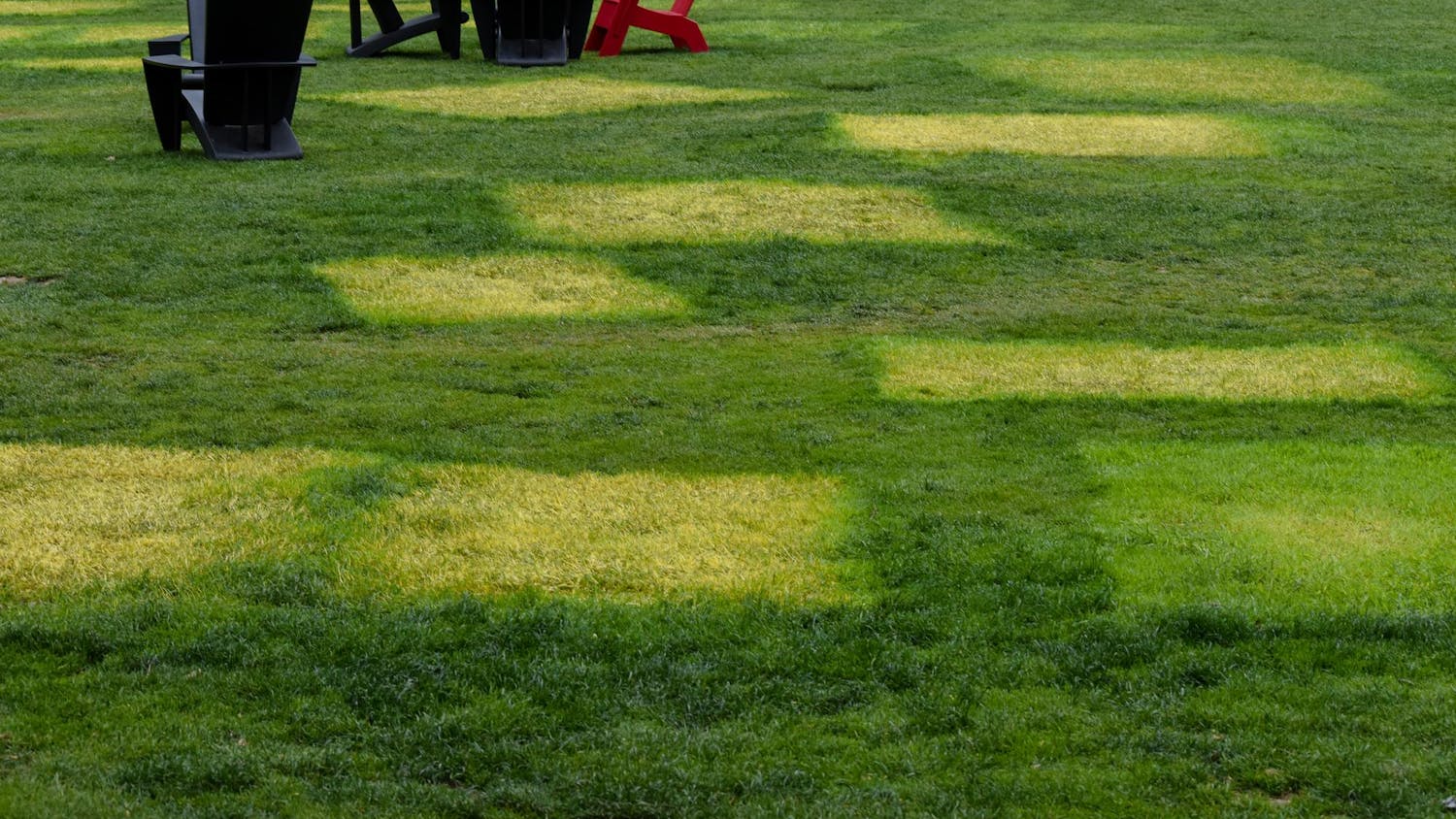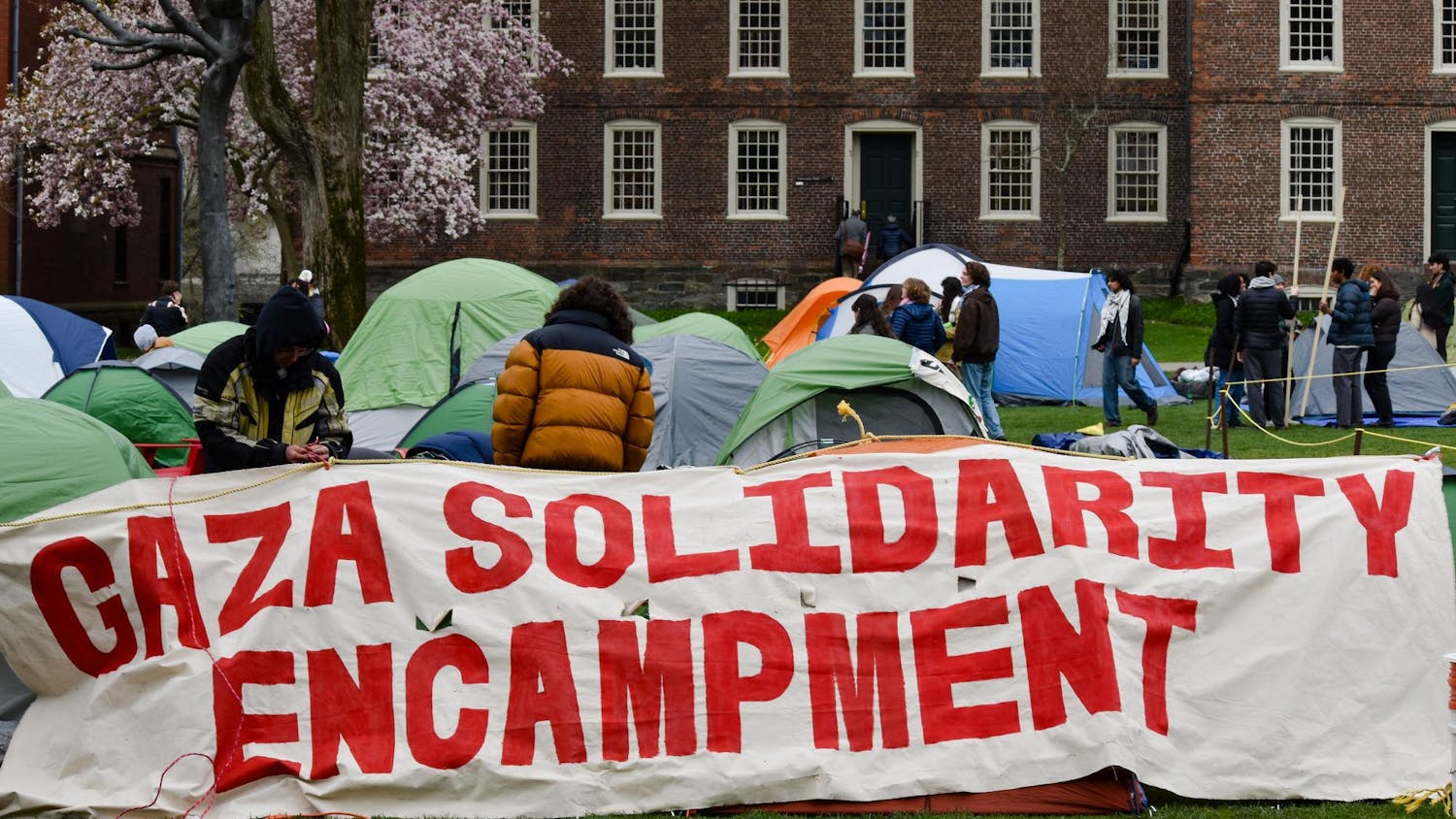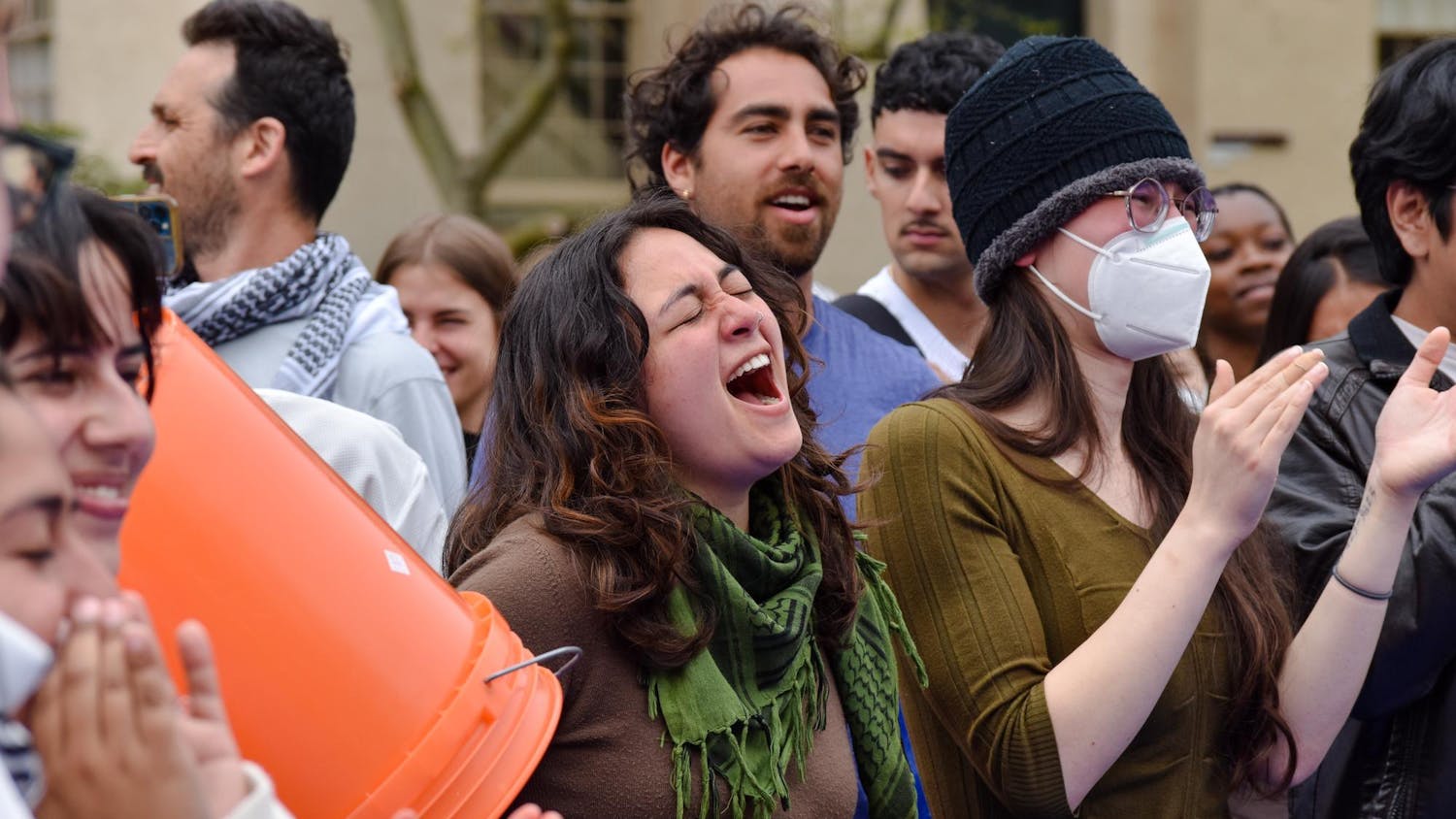More than 80 percent of Brown students believe abortion should be legal in at least the first trimester of a woman's pregnancy, according to a poll conducted by The Herald last month. About 42 percent of students polled said abortion should always be legal, while a combined 8.9 percent said it should always be illegal or only be legal in special circumstances.
Many students said the poll results were in line with the generally liberal atmosphere on campus - nearly two-thirds of students polled said they planned to vote for President Obama in the election, compared to 7.1 percent who supported former Republican presidential candidate Mitt Romney.
Students who supported Romney were almost evenly distributed across the spectrum of views on the legality of abortion, but more than 75 percent of Obama supporters said abortion should be legal at least in the first two trimesters. Fewer than 1 percent of Obama supporters thought abortion should always be illegal.
Students who were not planning to vote were more than twice as likely as respondents who planned to vote to say abortion should be illegal always or except in special cases.
Cassandra Pestana '15 said she is in favor of legalizing abortion as a matter of freedom over one's own body. "It should be legal just because it's a choice that no one should be able to take away," she said.
"What it means for me to be pro-choice is the idea that regardless of my own relationship with abortion, I believe that people should have the right to their own relationship with it," said Gopika Krishna '13, who works at the Center for Sexual Pleasure and Health in Pawtucket.
Some students said they were surprised that a plurality of their peers wanted to legalize third-trimester abortions, one of the most controversial types of abortions. Macon McLean '14, who said he supports legalizing first- and second-trimester abortions, expressed discomfort with the idea.
"You really shouldn't do that unless the life of the mother's in danger," he said. "I'm not okay with that."
Other students said they opposed legalizing abortion on moral or religious grounds. Phil Trammell '15 said his Catholic faith has in part informed his views. Trammell said he thinks even though the moment when a fetus gains its soul remains undetermined, the right to life is predicated on that "ensoulment."
"If I didn't believe in a soul, I'd be pro-choice," he said. "In the event of uncertainty it seems that without question you'd value the possibility of not killing someone. ... To allow abortion in that state of uncertainty seems really wrong."
Sex ed first
Many sources emphasized the importance of better sex education to prevent unwanted pregnancies before abortion becomes an issue. "Obviously we should be encouraging people to not make that choice, but not through law - more through culture and education," Pestana said.
Debates about abortion do not focus enough on the issue of education, said Nicole Hasslinger '15, who works at the Sarah Doyle Women's Center and is involved with feminist groups on campus.
"If people were aware about how the availability of sex education and birth control prevents abortion, they'd be much more in favor of helping inform people ahead of time, as opposed to punishing people after the fact," she said. Hasslinger added that access to abortion often falls along socioeconomic lines, disadvantaging poorer women.
The University provides resources related to pregnancy and abortion through Health Services. There are free pregnancy tests at Health Services if students make appointments, as well as tests available at reduced prices at the pharmacy. The Health Services website offers information about local abortion clinics, said Naomi Ninneman, health educator. Students can meet with providers at Health Services and are referred to Psychological Services for more extensive conversations, she added.
Ninneman said students are often surprised when she tells them some statistics about abortion: Roughly half of pregnancies in the nation are unintended, and about one-third of American women have an abortion at some point in their lives.
"I think people think it happens less than it does," she said.
Cultural influences
Both at the University and beyond, a number of other factors play significant roles in influencing perceptions of abortion, including religion, gender, race and class.
In the Herald poll, women were more likely than men to fall at the extreme ends of the spectrum, with higher proportions saying abortion should be always legal or always illegal. Men were nearly twice as likely as women to say abortion should be illegal except in special cases.
Hasslinger attributed these results to males' discomfort with abortion and reluctance to take an extreme position about others' bodies. "I think it's men taking the hard line but then not wanting to be the asshole that was like, 'Illegal always,'" she said.
The poll also found that students on financial aid were more than twice as likely to say that abortion should always be illegal, compared to those not on aid. Though many students said in interviews that they were unsure why that disparity might arise, some suggested that students from low-income backgrounds are more likely to be religious.
In his time at Brown, Rabbi Mordechai Rackover, associate University chaplain for the Jewish community and Brown-RISD Hillel, said abortion has rarely come up in conversation with students, as less religious young Jews are not as concerned with the theological implications of abortion. Rackover has been at the University since the 2008-09 academic year.
"I think the vast majority of young Americans don't take religious values into account on many choices," he said. "For Jews who don't grow up with people talking about abortion as being an issue, it's probably not something that crosses their mind in those terms," though some may have questions or regrets after the fact, he said.
Judaism lacks a single clear authority or teaching on the issue, Rackover said. But "the rabbis understood that a fetus, up until its 40th day, is considered water, as it were, so it doesn't exist," he said. "So until a certain point the soul isn't invested in the baby, and the baby's status isn't that of a person in the same way as (it is) later."
Catholicism takes the "ontological" approach to determining human life, said Reverend Henry Bodah, associate University chaplain for the Roman Catholic community. The Catholic faith teaches that "the being in the cradle and the being in the womb are the same human being, and therefore it has to be afforded the rights of a human being."
Bodah said some Catholics believe abortion should be illegal not just on religious grounds, but "because it's an offense against the dignity of human nature."
In today's political environment, though, Bodah said many Catholics are uneasy with the idea of mandates that affect individuals' bodies. "Most Catholics would agree that there's something wrong with abortion, but many would not be willing to say that it should be made illegal, because they're squeamish about feeling as though they're imposing something on others," he said. "Nobody likes to believe they're doing that."
The history of abortion has often been intertwined with elements of race and religiosity in the United States, said Francoise Hamlin, assistant professor of history and Africana studies. The legacy of slavery, as well as a history of forced sterilization of black women and high levels of religiosity, left many black women particularly sensitive to any attempts by white men to control their bodies, she said. In the black power movement of the 1960s and '70s, Hamlin said controversial leaders denounced any efforts to prevent childbirth in the black community, "so abortion and contraception were seen from this sort of more radical line as another attempt at racial genocide."
Campus dialogue
At Brown, abortion does not often arise as a controversial source of debate, in part because many students tend to associate with people who hold similar views, Hasslinger said. "You can self-select into groups here and you don't hear other people's opinions as often as you would like to, and you don't necessarily get thrown into conversations with people who are totally on the opposite side," she said.
At the same time, there is a diversity of opinions, and the quality of dialogues is elevated by the analytical eye and scholarship students bring to discussions, she said.
"You're getting people who are thinking very critically about this. Because you're around people who are studying public health, who are studying religious history ... you know that when you're engaging in this conversation you can't just rely on rhetoric. You have to be informed," she said.
But Hasslinger said there is also widespread ignorance about the prevalence of abortion even in the Brown community. "People at Brown get pregnant, and they deal with it," she said.
Krishna said she thinks the more liberal atmosphere in the Providence area means students less actively debate issues like abortion than do students on some other campuses. "I think that could stop some of the discussion," she said. "Even if people are all pro-choice, well, it's still useful to talk about it."
Methodology
Written questionnaires were administered to 959 undergraduates Oct. 17-18 in the lobby of J. Walter Wilson and the Stephen Robert '62 Campus Center during the day and the Sciences Library at night. The poll has a 2.9 percent margin of error with 95 percent confidence. The margin of error is 4.4 percent for the subset of males, 3.9 percent for females, 5.7 percent for first-years, 5.5 percent for sophomores, 5.9 percent for juniors, 6.4 percent for seniors, 4.3 percent for students receiving financial aid and 4.0 percent for students not receiving financial aid.
Find results of previous polls at thebdh.org/poll.
ADVERTISEMENT




